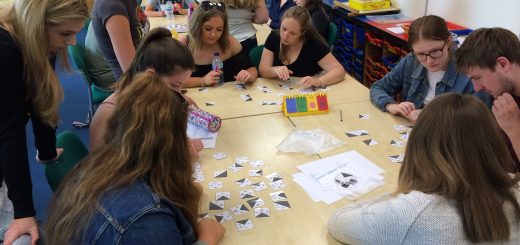Where are they now? – Jack Patterson
Before I start, here are some things that I’m unapologetically proud of:
- I successfully passed my NQT year getting Outstanding observations in subjects such as Maths, Literacy, Music.
- I moved out of home and bought my own place in my NQT year.
- This year, at our staff training weekend, I led a whole-school staff training project.
- Since starting at my school: I’ve been put on the Literacy and Music coordinator teams; I’ve taken over making and running the school website; I have survived three residential trips and two visits to the Young Voices concert at Sheffield Arena.
When I was asked to write a blog about my time during and since YSJ, I began by looking at the previous entry and trying to take inspiration from that. But that’s we do on a regular basis, isn’t it? Every day we provide examples and models to support the children and, when I was asked to write something, I immediately looked to do exactly what the children do. Even now, as I’m writing, I’m thinking to myself about how I’ve included a relative clause and I silently praised myself on my inclusion of parenthesis. Only after looking at the previous entry, which was written by a YSJ graduate (who is now a head teacher), did I realise that I was going to have to do something without a model: there was no way that I would be able to talk about the same things as him.
Then it struck me… at uni—which was only two years ago—I would have never considered myself a paperwork kind of guy. I see myself as being more creative and there was a time when I would be able to write easily without the need of model or example; during my time at YSJ I was a member of the Drama Society and wrote the YSJ Pantomime. I also won the University Creative Writing competition (which was great as I won despite being the only person not to study English/Writing). At the start of my NQT year, paperwork was not my forte and by the end of the year my NQT file consisted mostly of photos and selfies. Now, however, I wanted a guide, questions to answer, success criteria.
This is what teaching, I think, does to you. This is what university can’t prepare you for. No matter what you learn at uni, what essays you write, what beliefs you have, your NQT and subsequent years will change you. There’s a reason why Head’s like NQTs: they’re cheap and mouldable. In my philosophy of education essay, I wrote about revolution in education, the work at Summerhill and progressive approaches. Now, I’d say I was borderline traditional with my approaches and have subconsciously changed my ideas/methods based on those around me.
Is this a negative? Possibly not, but it does show us how priorities in education change. My priorities at the moment are: children’s progress, the next book scrutiny, safeguarding, Ofsted, paperwork.
I still aim to do the best by my kids, of course, but my way of doing that is now set on the traditional, tried and tested styles—a great deal less radical a teacher than I ever thought I was.
Before you graduate and start your first full-time teaching job, you’ll have an idea of who you are as a teacher and what you hope for. Aim to stick to it but don’t aim to hold onto it rigidly. I guarantee things will change. Look at yourself at the start and end of your NQT year… excluding the new-found grey hairs, you won’t be the same person you were at the start.
In the midst of everything that can go on in your year (buying your first house, car troubles, Ofsted, realising that you have not got a clue what determiners are) there is a joy to teaching and even the most difficult class makes it all worthwhile. My advice is don’t take anything for granted but do take times, like I have with this, to reflect.
Also, get ready to hate the supermarket displays that say the ominous phrase “back to school”, which seem to pop up in late July.



